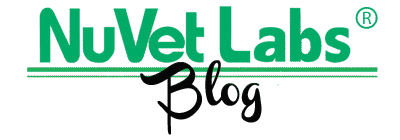After reading all the books you could find on puppies and puppy care and researching which breed would complement you best, you have finally decided to take that leap and open up your heart and home to a new puppy. You have a lot of information and ideas floating around in your head on how you will carry out this lively doggie adventure. In fact, you may have so many ideas taking up space in there that you might feel a bit overwhelmed and not sure where to begin. Here’s some important things to remember to help you and your pooch start out on the right foot (or paw).
Be Patient…
Because your puppy isn’t cooing or crawling like a human infant, try to always remember that your new pup is still a baby. It is going to take some time for them to get the proper behavior and habits down. Get used to the idea that there will be some accidents and that it is not the end of the world. Also, and this is important, be patient with yourself! Being a new parent is a learning process that is going to take some time for you as well.
Be Flexible
Being flexible will help take some of the burden off you feeling like you have to do everything perfectly. Just because a book tells you that you can only train your dog how to do something one way, does not mean it is necessarily the right way for your dog. Listen to your instincts and trust in the bond you share with your dog. You might come up with a better and happier way to do something that will get the exact same point across to your pooch.
Take a class
If in doubt, take a puppy training class. You will get to work with somebody who should be very familiar with dogs and canine behavior. Chances are you will meet new puppy parents on the same journey as you. The experience and support you find may pleasantly surprise you.
Good Nutrition
One way to keep your new puppy on the right path is to make sure that you are providing them with optimal nutrition. You should be feeding your dog a protein and nutrient rich dog food.
Be Consistent
Most likely it is going to take you more than once to get a point across to your new dog. Make sure when you are reiterating the behaviors that you want to instill in your pup that you always try to use the same language.
Frequent and short
Like small children puppies can have a rather short attention span so when trying to train your pup work on new skills and behaviors for short periods of time throughout the day. That way it won’t seem overwhelming for you or your puppy. Try to keep the sessions shorter than 15 minutes. If you find yourself unhappy, stop the training session. The experience should always be as fun and positive as possible.
Listen
Part of developing that great bond with your new dog is learning how to listen to them. Certainly dogs cannot talk but they are great at using body language and behavior to tell you how they feel. You should be able to sense if your puppy is happy, sad, excited or even frustrated. If you can’t see any outward signs, listen to your instincts or just take a minute to try and sit calmly with your dog. You may be surprised at what you hear.
Be Kind and affectionate
Most puppy parents will tell you that what their dog likes to do the most is make them happy. One way you can tell Fido he is making you happy is by giving him a lot of praise and affection. Playing with your pup, rewarding him with a treat when he does something correctly and giving him a gentle scratch behind the ears are all ways you can tell your puppy you love him and appreciate him.
If it helps, print this little article out and keep it handy so you can always have a list of reminders available if and when you find yourself a little frustrated with your pup. Ultimately the relationship that you are trying to foster with your new puppy should be one filled with happiness, companionship and fun. Sometimes these important elements of a cohesive human-dog household can get murky when things are new and boundaries are trying to be established and enforced.


